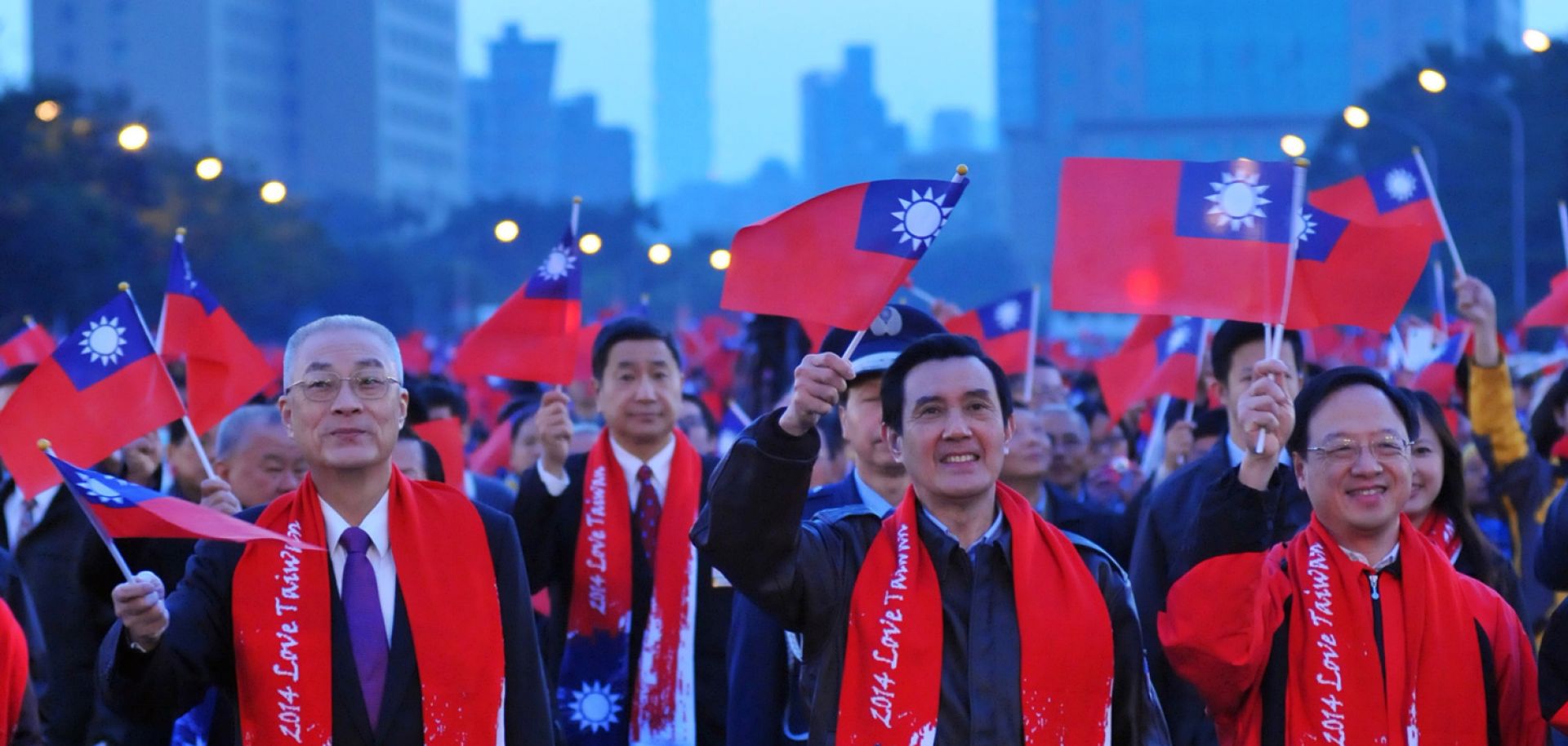ASSESSMENTS
Taiwan: Challenges to Regional Economic Integration
Feb 18, 2014 | 11:32 GMT

Taiwan President Ma Ying-jeou (C), Vice President Wu Den-yih (L) and Premier Jiang Yi-huah (R) at a flag-raising ceremony in Taipei on Jan. 1.
(Mandy Cheng/AFP/Getty Images)
Summary
Taiwanese envoys to 16 countries in the greater Pacific Ocean basin region convened in Taipei on Feb. 17. They received an update on Taiwan's efforts to join the U.S.-led Trans-Pacific Partnership and the Regional Comprehensive Economic Partnership. China is a key negotiator in the latter of the two prospective multilateral trade agreements. The seminar is one of several indicators that Taipei does not intend to let the island stray too far into China's unilateral economic orbit, even as it looks to cement new trade agreements with the mainland.
Joining international institutions such as the World Trade Organization — and cementing bilateral trade agreements with regional partners such as Singapore and New Zealand — is not only a means to enhance Taiwan's economic competitiveness. More fundamentally, these efforts allow Taiwan to promote its bid for recognition as a sovereign entity, rather than as the wayward province Beijing portrays it as being. Taiwan's actions abroad carry strong strategic undertones and reflect deeper struggles and uncertainties in Taipei's strategic environment.
Subscribe Now
SubscribeAlready have an account?
